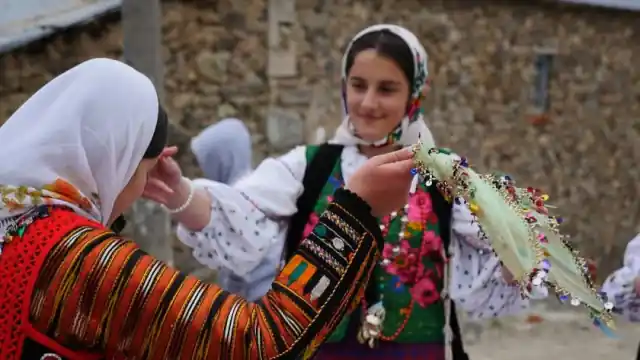
Albania’s latest national census, conducted from September 18 to November 15, 2023, has revealed significant demographic changes and a rich tapestry of ethnic and religious diversity within the country.
According to data released by “Top Channel,” 7,057 individuals identified themselves as Bulgarians. This is the first census since Bulgaria’s national minority was officially recognized in Albania in 2017.
The census shows Albania’s population stands at 2,412,113, reflecting a decline of nearly 420,000 people since the 2011 census, a decrease of 13.8 percent.
The director of the Albanian Statistical Institute highlighted that the population is organized into 755,950 families, with an average of 3.2 members per family.
The country has 1,082,529 ordinary homes, of which 11 percent are uninhabited. Detailed data for each district and locality is expected to be released by December 2024.
In addition to Bulgarians, the census identified other minority communities: Greeks (23,485), Montenegrins (511), Aromanians (2,459), Roma (9,813), Egyptians or Ashkali (12,375), Bosniaks (2,963), Serbs (584), and Macedonians (2,281).
Furthermore, 3,798 people indicated another ethno-cultural affiliation, 770 identified as having a mixed ethno-cultural affiliation, and 1,142 did not indicate any ethnicity. A total of 13,507 respondents chose “prefer not to answer” regarding their ethnicity.
Religious affiliation was another significant aspect of the census. The data reveals 201,530 Catholics, 173,645 Orthodox Christians, 9,658 Evangelicals, 1,101,718 Muslims, 115,644 Bektashis, and 85,311 atheists.
Additionally, over 332,000 Albanians identified as believers without specifying a religion, and 244,331 did not wish to answer questions about their faith.
This census is Albania’s twelfth national census since its independence in 1912, with the first one conducted in 1923. Originally scheduled for 2020, the census was postponed due to the COVID-19 pandemic and the severe earthquake in 2019.
The optional questions regarding ethnicity, language, and faith were among 100 questions on the census form, with no penalties for non-responses.
The results of the census hold significant importance for the Bulgarian population in Albania. In recent years, various organizations have been working to prove the existence of Bulgarians in Albania amidst provocations and threats to representatives of the Bulgarian community.
Dr. Vrabevski from the Bulgarian Memory Foundation has been actively improving living conditions for Bulgarians in Albania. His initiatives, in coordination with the Ministry of Foreign Affairs and Bulgaria’s diplomatic representation, include donating a police car, a fire engine, and a car for social patronage.
He has also financed the repair of water supply systems, and furnished schools and municipal buildings in areas with Bulgarian populations.
Dr. Vrabevski’s charitable actions extend to donating medical equipment and organizing free medical examinations for the region’s population by leading Bulgarian doctors.
These efforts underscore the importance of formulating an adequate policy towards Bulgarians in Albania, facilitating their access to Bulgaria’s health system and education, and ensuring their right to dual citizenship.
The recent census data not only provides a comprehensive overview of Albania’s current demographic and social landscape but also underscores the challenges and needs of its minority communities.
As Albania continues to evolve, these insights will be crucial for shaping policies that ensure inclusive growth and support for all its citizens.
This article was created using automation technology and was thoroughly edited and fact-checked by one of our editorial staff members
